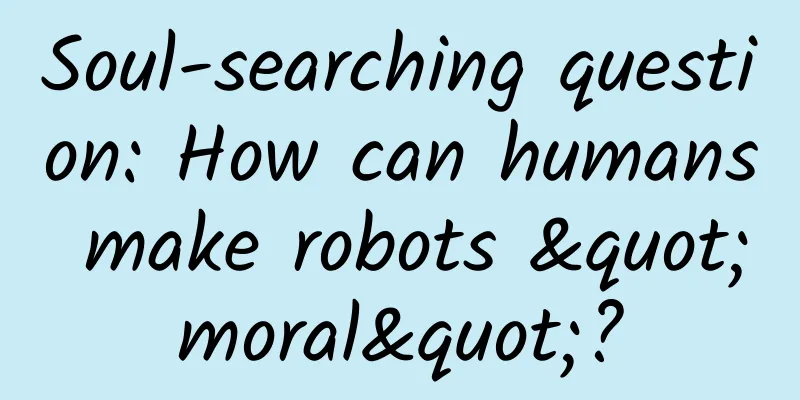Unfettered space exploration may be threatening the future of “space security”

|
【Mobile software: Bo Ke Yuan】As countries and private enterprises look to space for new opportunities and commercial space activities grow, the sustainability of space exploration is more important than ever. According to Mark Meaney, resident scholar at the Social Responsibility and Sustainability Division (SRS): As more private sector entities participate in commercial space activities, stakeholders need to agree on norms and rules if space activities are to be coordinated to benefit everyone. Contrary to popular belief, outer space as a resource is not unlimited, so the space industry must develop agreed-upon rules to coordinate the use of space. The project's principal investigator (PI) Meaney and co-PIs; Zack Donohew of SRS and Lewis Groswald, corporate program director at Smead Aerospace Engineering Sciences; are currently conducting new research to determine how this can be accomplished. Their study, "Space and Sustainability: Codes of Conduct for Sustainable Commercial Space Activities explores ways in which space sustainability is threatened. From debris in orbit to satellite congestion, ideas are presented to promote the development of sustainable norms, rules, and business models. By addressing these issues early, we can collectively ensure that space remains accessible to future generations. The team was awarded one of CU Boulder’s 2020 Research and Innovation Seed Grants to support this research effort, and its entry was accepted in Grand Challenges: Our Space, a strategic initiative dedicated to spanning and connecting disciplines across campus. The Research and Innovation Seed Fund is intended to "promote interdisciplinary and multidisciplinary work in research, scholarship, and creative activity projects. These projects will either explore new areas of research with high impact and future funding potential, or engage in research, scholarship, or creative activity that is of high value to the arts and humanities." Since private space exploration is still relatively new, it is important to establish norms and behaviors that promote sustainable development early on. It is also crucial to find a balance between private and national use of satellite orbital space, as creating too much debris early on could make space launches impossible later on. From a sustainability perspective, the project team is interested in applying the concept of the “tragedy of the commons” to commercial space activities. In the absence of coordination, individuals acting independently may deplete limited resources. Advances in reusable rockets, reduced costs per launch, and miniaturization of satellites are opening new business opportunities for the thriving commercial space industry. As more private sector entities develop extraterrestrial ambitions, the sustainability of space activities is increasingly at risk. Explore the extent of the orbital debris problem, facilitate the development of norms and rules, and develop sustainable business models that support space entrepreneurship. Humanity is reaching a critical inflection point in space security as more nation states develop counterspace technologies. Unfortunately, the study considers the Space Force to be an escalation in the proliferation of new offensive counterspace capabilities. An increasing number of nation states are experimenting with space weapons, so-called anti-satellite weapons (ASATs). This has the unintended consequence of the proliferation of orbital or “fragmented” and “mission-related” debris. Naturally, orbital debris is the enemy of commercial space activities, so, in short, a Space Force is counterproductive to space entrepreneurship. On the other hand, aerospace companies play a leading role in developing norms of conduct to regulate the military use of space. It is clear that it is in the best interest of the private sector to ensure the peaceful use of outer space. The emerging commercial space industry includes many sectors, such as communications and navigation, habitation, robotics, tourism, transportation, and exploration and extraction. Boco Park | Research/From: University of Colorado Boulder |
<<: If a nuclear bomb were dropped on the Yellowstone volcano, would it cause a huge disaster?
>>: Explore the mysteries of physics at the Beijing Science Carnival "Abstract Physics Laboratory"
Recommend
April 2022 "Science" Rumors List: Drinking Coke will cause a positive antigen test? Dogs also shed tears when they are wronged?
The monthly "science" rumor list is gui...
How amazing has Android changed over the years? A reminder of old players' memories
The new generation of Android system will soon be...
The most comprehensive APP operation and promotion plan!
"I recently published an article [How much d...
A collection of brands leveraging the May 4th Youth Day!
Today, May 4th, is Youth Day. Did you know? The &...
Jianying Template Master Operation Course, Application + Operation + Editing Full Video Course
Jianying Template Master Operation Course, Applic...
Red Business School·Xiaohongshu Blogger Training Camp 3.0, practical operation can easily earn more than 10,000 yuan a month
Red Business School·Xiaohongshu Blogger Training ...
Insights and solutions for the automotive industry during the epidemic
At the beginning of the Year of the Rat, a sudden...
Very rare! There will be only 7 times in the 21st century, and the "total annular solar eclipse" will shock the audience
Copyrighted images from the gallery, unauthorized...
Looking for Easter eggs in the code, Google is no longer the Google you know
[[144804]] Google, the world's largest Intern...
When can I poop out last year's poop?
Today is the sixth day of the Lunar New Year, and...
The latest overseas advertising and marketing methods in 2021
In a blink of an eye, 2020 has passed. This year ...
Electric Technology Car News: How to choose a hard-core SUV? Trumpchi's new GS7 vs. Harvard H7
Launching two or even more cars at the same time i...
Are new media and fan economy a cognitive bubble?
Once deep-rooted ignorance and arrogance become a...
The sixth session of the Aiti Tribe Technical Clinic
【51CTO.com original article】 [51CTO original arti...
How to find the most click-through creative ideas in Sogou bidding promotion background?
With the development of the advertising and marke...









